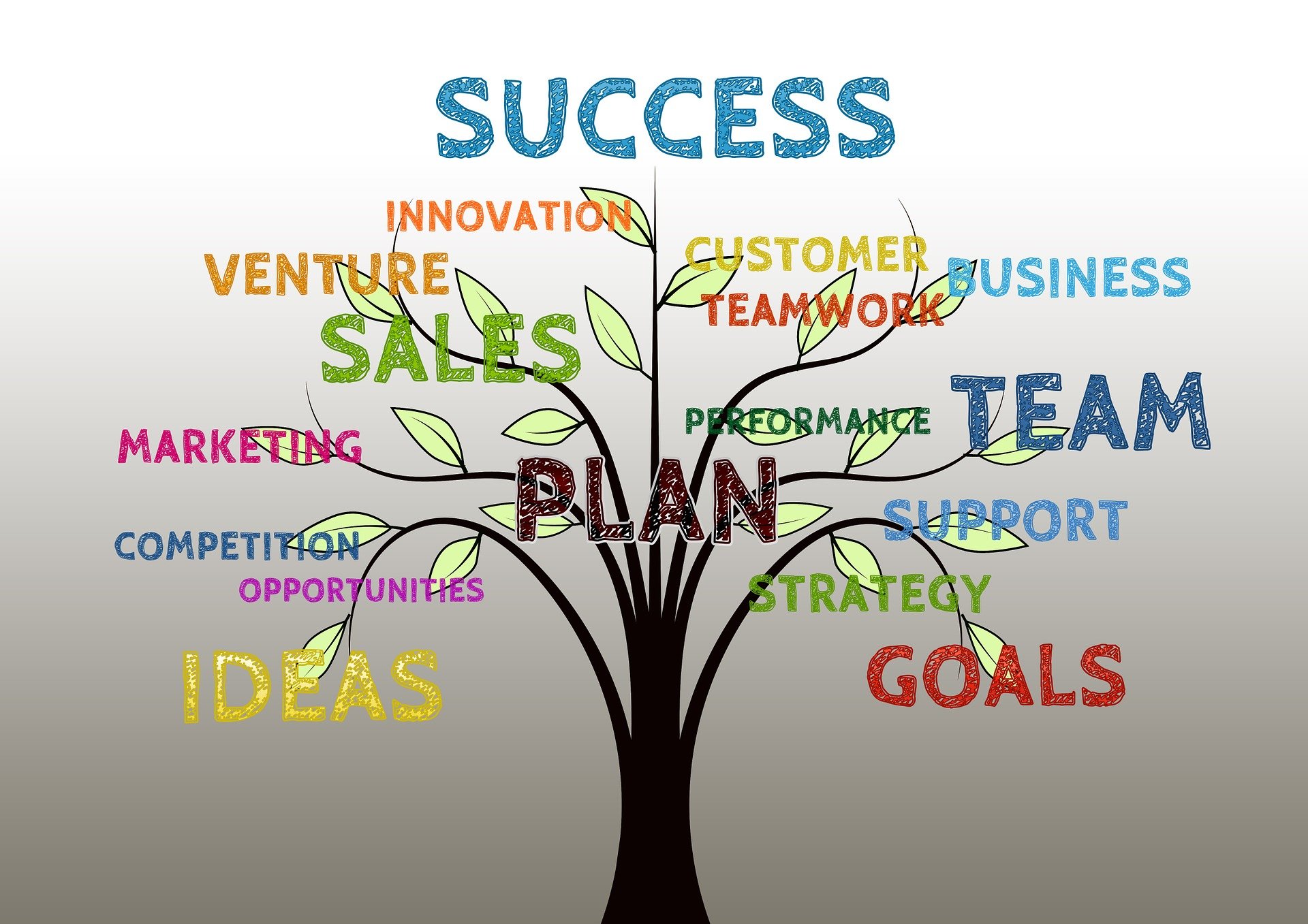Key Takeaways
- 8 Keys To a Successful Sales Team
What Makes a Successful Sales Team?
Are you trying to build a successful sales team but don’t know where to start? You came to the right place! In this blog post, you’ll discover all the necessities for building and managing an effective sales team. From identifying ideal candidates and honing in on specific qualities that make top performers stand out to following best practices on compensation and training. Besides, identifying and resolving potential issues within the group before they become irreparable is key. We will explore plenty of tips to help create your sales success story. Get ready; it’s time to unlock the secrets of creating a five-star sales team!
Having a successful sales team is the foundation of any business. In today’s competitive marketplace, having a high-performing sales force is more important than ever. The right approach and combination of resources can make all the difference in achieving long-term growth and profitability. Investing in the right technology, implementing an effective strategy, and ensuring team members are well-motivated can set you on the path to success. Building an effective team that knows how to market your product or service to customers requires effort. But what goes into making a winning sales team?
What is the Key to a Successful Sales Team?
When developing a sales team, it’s essential to remember that the team can make or break success. It is the engine to sales operations and revenue generation.
The right team will be up-to-date with comprehensive product knowledge skills, have an understanding and ability to apply marketing principles, and have a positive attitude towards their job. They should enhance direct marketing campaigns. Your team should strive to be the best to maximize return on investment and establish customer loyalty. Here are tips on what makes a successful sales team.

Define Your Objectives, Goals and Strategy
It’s essential to have a clearly defined set of objectives and goals. Ensure you set clear expectations of what needs to be accomplished. Your goals can be weekly, monthly, or quarterly while keeping an eye on your desired annual performance. Objectives need to be realistic and consistent with the company’s mission and vision to achieve success. A good sales plan should consider short- and long-term objectives, the desired customer experience, and a process for tracking performance.
Regarding strategy, ensuring everyone is on the same page is important. Establish a game plan and develop an effective sales process. Having a well-defined strategy is key to achieving goals. A good strategy should be tailored to your team and focused on generating sales. Create a plan for each individual, defining their specific objectives and giving them the tools to meet their goals.
For example, if the goal is to increase revenue by 20% this year, one strategy could be targeting more customer segments and boosting customer satisfaction. Objectives would include a sales playbook that would include outreach strategy to new leads, strategy plan for customer retention and a customer success strategy to develop stronger relationships with current customers. The short-term goal would be increasing sales revenue by 5% quarterly.
Develop a Sales Team Structure
The sales team structure should optimize performance. Establishing sales team roles and responsibilities is essential to creating a more adaptive sales force. It will define who does what, when, and how. Sales roles may include managers, account executives, customer service representatives, and sales support specialists.
The digital world has created an opportunity to restructure sales teams. Traditional roles, from managers to sales support specialists, may still exist but should be adapted to the changing digital landscape. With tools such as lead scoring, marketing professionals can spend time warming leads up while sales representatives take on the role of the initial outreach. Other digital marketing tools include podcasting, digital PR, brand extensions, and marketing automation.
Sales managers should be prominent in the sales team structure and ensure that goals are achieved. They should be knowledgeable about digital marketing trends, customer segmentation tactics, and lead qualification processes. Account representatives should be adept at acquiring new customers, developing relationships, and overseeing sales strategies. Customer service representatives should be up to date on product and service changes and other customer inquiries that may arise. Sales teams in the digital world need to be proactive and flexible.
Hire for Talents and Qualifying Skills
Before recruiting, you must understand your current team to identify sales gaps. You can do this through Disc Assessment to analyze personality traits. When it comes to sales, successful salespeople must possess the sales skills and talent set necessary for success.
A good salesperson should have skills such as communication, negotiation, and sales techniques. They should understand customer needs and provide solutions. Having sales knowledge and technology expertise like CRM is important. Consider sales experience in the sales management and how it can benefit your team — like hiring new top talents with new ideas. Your target hire should have a strong professional digital footprint.
Sales reps should also have the right sales qualifying skills for sustained success. These include asking the right questions, uncovering customer needs, identifying sales opportunities, and closing sales deals. Besides, they should have a personal excellence record, a lot of listening, and rapport-building tactics.
If you want to hire sales reps, create a salesperson profile and interview process that strives to identify the right candidates. It will also help if you consider using recruiting software and sales assessment tools to get the best candidates.

Invest in Sales Training, Development, and Onboarding Programs
Sales training, development, and onboarding are key components of any successful sales team. They help ensure that sales reps have the competencies for long-term productivity. You should tailor training programs to the individual roles and consist of training materials, presentations, coaching sessions, and eLearning programs. It should also include training on specific technology and tools.
Development programs should allow your sales team to expand their knowledge base and learn recent skills to remain competitive. Mentoring and shadowing are great training programs for developing sales reps. Onboarding is another essential piece of training that helps new employees familiarize themselves with the company’s policies, processes, and culture.
Provide them with tools to comprehend the objectives of your business, the sales cycle, and standard troubleshooting techniques. Ensure training programs are comprehensive and regularly updated for maximum effectiveness.
Have a Competitive Compensation Structure and an Incentive Program
Having a competitive salary structure is essential to having a successful sales team. Salaries need to be in line with those offered by industry competitors. Otherwise, your salespeople may feel undervalued and leave for a payment.
Besides, sales teams should also have commission structures that incentivize them. A competitive commission plan will help align the team’s performance goals with the company’s and motivate them to achieve their targets.
Compensation should also be based on individual performance and not just the team’s overall goals. It ensures that everyone is adequately rewarded for their efforts and that the team’s successful members are appropriately compensated.
It is also important to consider non-financial rewards and recognition of accomplishments. This can include publicly recognizing stellar performances, rewarding top performers with trips or other prizes, and providing bonuses for meeting milestones. These can help drive team performance by making salespeople feel valued and appreciated.
Competitive salary structure, commission plans, and incentive programs are core to building a successful sales team. The most important aspect is to ensure that the compensation motivates each individual to strive for their best performance.
By offering competitive salaries and commissions, salespeople will be more likely to stay with the team, resulting in a higher-performing workforce.

Leverage Sales Enablement Tools
Sales enablement equips your sales team with the resources, processes, and technology needed to succeed in their roles. The enablement tools help sales teams be more productive, maximize their performance, and hit targets. These include customer relationship management (CRM), customer service management software, marketing automation platforms, data analytics, and more.
CRMs are an important element in sales enablement; they allow sales teams to easily track customer interactions, automate communications, and manage leads. Customer service management software helps teams provide efficient customer service and develop meaningful customer relationships.
Marketing automation platforms like Bloomreach enable sales reps to quickly and easily build campaigns and track customer engagement. They create personalized content for target audiences and measure ROI.
Data analytics allows sales teams to identify patterns and trends in customer behavior and adjust their strategy according to their goal. By using SFE Partners’ data-driven solutions, sales teams can gain valuable insights into what works best for their customer base and optimize their approach.
Companies should take time to evaluate their needs and choose the right tools for their teams. It will ensure you use the most effective and efficient processes to maximize sales performance and enhance your team.
By investing in the right sales enablement tools and leveraging their capabilities, you can equip your sales team with the ability to close deals fast.

Create a Robust Company Culture
Creating healthy, vibrant, and meaningful company culture is key for any business wanting to build a successful sales team. A healthy company culture in which employees and customers feel valued and appreciated can improve team morale and performance levels. To build a culture of engagement, employers should focus on creating an environment of trust and respect.
It is also important to cultivate a learning culture. Encourage and support your sales teams to develop their knowledge and skills. It can include anything from incorporating new technology and techniques to exploring different industry trends.
It would help to consider ways to build your sales teams’ confidence. Provide consistent feedback, share customer success stories, and recognize them when goals are met.
The mission and vision of the company should also be integrated into the culture. Companies must ensure everyone understands their roles and how they contribute to the organization’s success. Let every member of the team know that what they do matters.

Track Critical Sales Metrics
A high-performance sales team needs regular monitoring to measure their progress, allowing you to change the sales strategy if needed. To monitor sales performance and measure ROI, you must track key metrics.
These include customer acquisition cost (CAC), average revenue per user (ARPU), lead conversion rate, customer satisfaction (CSAT) score, and average customer deal size.
- Customer Acquisition Cost: This is the total cost to acquire a customer. It shows how much money you spend to win customers and the effectiveness of customer acquisition campaigns.
- Average Revenue Per User: This metric helps measure customer loyalty, lifetime value, and engagement. The total revenue generated from customers is divided by the number of users.
- Lead Conversion Rate: It shows your sales team’s effectiveness at customer acquisition. It measures the number of leads that convert into customer purchases.
- Customer Satisfaction score: This is a measure of customer service. It helps compare customer feedback across customer service teams, products, or services.
Tracking these key sales metrics makes it easier to identify improvement areas and optimize your sales team.
Build a Dream Sales Team
A successful sales team is built on trust, respect, and empathy between the employees and the company. Investing in sales enablement tools, training, and development programs will prepare your team for any challenges. While having a competitive compensation structure and incentive program is essential to encouraging performance, you should also remember to recognize accomplishments through recognition and awards.

Besides, your team must have a well-structured sales process, a clear and effective strategy, and the right team structure. It will help if you also consider hiring talents and qualifying skills to ensure you get the best sales reps. Further, tracking key performance metrics can help you in team sales management and maximize their potential.
Building a successful sales team requires much effort, but the benefits are worth it. With a successful sales team, your business can reach new heights and achieve more success. And SFE Partners is the perfect partner to help you create that dream sales team.
We are committed to providing your team with the best guidance, training, and resources to ensure you build a top-performing team. We’ll help you track the right sales metrics to maximize your team’s performance and revenue.
You’re one step away from transforming your sales team into a success. Let SFE Partners be your partner in sales force effectiveness and help you make a winning sales engine. Together, we’ll ensure your sales team wins!
Contact us today to start building your dream sales team!




